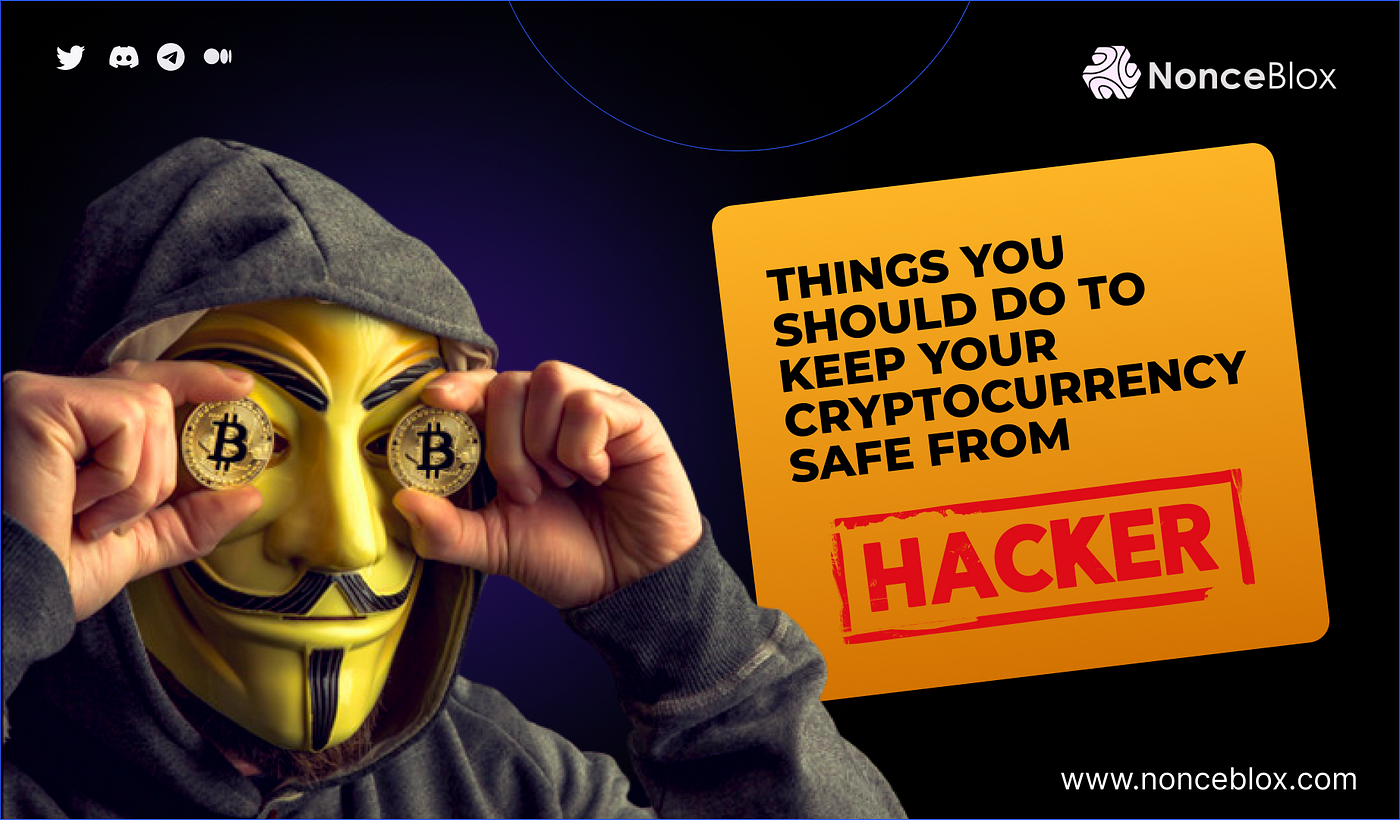How to Keep Your Cryptocurrency Safe from Hackers
In the digital age, the allure of cryptocurrency as a revolutionary financial system is accompanied by significant security risks. Hackers constantly seek vulnerabilities in the digital wallets and exchanges that store and manage cryptocurrency. Protecting your assets requires a strategic approach and adherence to best practices.
This article outlines comprehensive strategies to keep your cryptocurrency safe from hackers.

Understanding Cryptocurrency Security Basics
The Importance of Private Keys
Private keys are the backbone of cryptocurrency security. These cryptographic keys allow access to your digital assets and authorize transactions. The loss or theft of a private key means losing access to your cryptocurrency permanently. Safeguarding your private keys is paramount.
Types of Wallets
Cryptocurrency wallets come in various forms, each with its own security features:
- Hardware Wallets: Physical devices that store private keys offline. Examples include Ledger and Trezor.
- Software Wallets: Applications installed on computers or smartphones. These can be further divided into hot wallets (connected to the internet) and cold wallets (offline).
- Paper Wallets: Physical printouts of private and public keys. While immune to online attacks, they are susceptible to physical damage or loss.
- Exchange Wallets: Wallets provided by cryptocurrency exchanges. These are convenient but often targeted by hackers due to the large volumes of assets they hold.
The Role of Blockchain
Blockchain technology underpins cryptocurrencies. It is a decentralized ledger that records all transactions across a network of computers. While blockchain itself is highly secure, the endpoints (wallets and exchanges) where cryptocurrency is stored are vulnerable to attacks.
Implementing Strong Security Practices
Using Hardware Wallets
Hardware wallets are considered the gold standard for cryptocurrency security. These devices store private keys offline, making them immune to online hacking attempts.
Users should purchase hardware wallets directly from manufacturers to avoid tampered devices and follow the setup instructions meticulously.
Enabling Two-Factor Authentication (2FA)
Two-factor authentication adds an extra layer of security by requiring a second form of verification, typically a code sent to your mobile device, in addition to your password. This reduces the risk of unauthorized access even if your password is compromised.
Creating Strong, Unique Passwords
Passwords should be long, complex, and unique for each account. Use a combination of uppercase and lowercase letters, numbers, and special characters. Avoid using easily guessable information such as birthdays or common words.
Regularly Updating Software
Keeping your software up to date is crucial in protecting against vulnerabilities. This includes wallet software, operating systems, and antivirus programs. Updates often contain security patches that address known threats.
Avoiding Public Wi-Fi
Public Wi-Fi networks are notoriously insecure. Avoid accessing your cryptocurrency accounts or conducting transactions over public Wi-Fi. If necessary, use a virtual private network (VPN) to encrypt your internet connection.
Advanced Security Measures
Utilizing Multi-Signature Wallets
Multi-signature (multi-sig) wallets require multiple private keys to authorize a transaction. This adds an extra layer of security, as hackers would need access to multiple keys simultaneously. Multi-sig wallets are particularly useful for organizations or individuals with large holdings.
Storing Keys in Cold Storage
Cold storage refers to keeping private keys completely offline, such as on a hardware wallet or paper wallet stored in a secure location. This method is highly secure but less convenient for frequent transactions. Consider cold storage for long-term holdings.
Implementing Whitelisting
Whitelisting allows only pre-approved addresses to receive funds from your wallet. This can prevent unauthorized transactions even if a hacker gains access to your account. Regularly review and update your whitelist to ensure it remains secure.
Conducting Regular Security Audits
Periodically review your security practices and conduct audits of your accounts and devices. Look for any signs of unauthorized access or unusual activity. Consider hiring a cybersecurity expert to perform a comprehensive audit.
Staying Informed and Vigilant
Keeping Up with Security News
The landscape of cybersecurity is constantly evolving. Stay informed about the latest threats and vulnerabilities by following reputable news sources, security blogs, and forums. Being aware of new attack vectors can help you take proactive measures to protect your assets.
Educating Yourself and Your Team
If you manage cryptocurrency for a business or organization, ensure that all team members are educated about security best practices. Regular training sessions can help everyone stay vigilant and prepared for potential threats.
Recognizing Phishing Attempts
Phishing attacks are common in the cryptocurrency space. Be wary of unsolicited emails, messages, or websites asking for your private keys or personal information. Always verify the legitimacy of communications before taking any action.
Using Trusted Exchanges and Services
Only use reputable cryptocurrency exchanges and service providers with strong security measures and positive track records. Research their security protocols and user reviews before entrusting them with your assets.
Conclusion
Securing your cryptocurrency from hackers requires a combination of basic precautions, advanced security measures, and ongoing vigilance. By understanding the importance of private keys, using hardware wallets, enabling two-factor authentication, and staying informed about the latest threats, you can significantly reduce the risk of losing your digital assets. Remember, in the world of cryptocurrency, security is paramount, and taking proactive steps today can safeguard your investments for the future.

























![[LIVE] Engage2Earn: Save our PBS from Trump](https://cdn.bulbapp.io/frontend/images/c23a1a05-c831-4c66-a1d1-96b700ef0450/1)





























![[ℕ𝕖𝕧𝕖𝕣] 𝕊𝕖𝕝𝕝 𝕐𝕠𝕦𝕣 𝔹𝕚𝕥𝕔𝕠𝕚𝕟 - And Now What.... Pray To The God Of Hopium?](https://cdn.bulbapp.io/frontend/images/79e7827b-c644-4853-b048-a9601a8a8da7/1)
